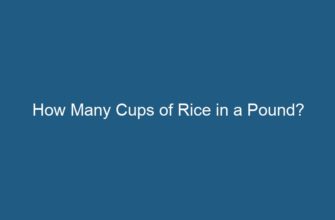An unprocessed product refers to a raw material or an item that has not undergone any form of processing or manufacturing. These products are directly sourced from nature or obtained through extraction, and they typically require further processing to be transformed into a usable form. Unprocessed products can be found in various industries, ranging from agriculture to mining and beyond. In this article, we will explore some examples of unprocessed products and their significance in different sectors.
- Agricultural Unprocessed Products
- Mineral Unprocessed Products
- Forestry Unprocessed Products
- Seafood Unprocessed Products
- Importance of Processing Unprocessed Products
- FAQs:
- 1. Why are unprocessed products considered raw materials?
- 2. How does processing add value to unprocessed products?
- 3. Can unprocessed products be directly consumed?
- 4. What are the environmental impacts of processing unprocessed products?
- 5. Are there any health risks associated with unprocessed products?
- 6. How does processing affect the nutritional value of unprocessed products?
- 7. What industries rely heavily on unprocessed products?
- Conclusion
Agricultural Unprocessed Products
Agriculture is one of the primary sectors where unprocessed products are abundant. These products are derived from crops, livestock, and other natural resources. Some examples include:
- Raw Crops: Wheat, corn, rice, barley, and other grains are considered unprocessed until they are cleaned, milled, and processed into flour or other food products.
- Fruits and Vegetables: Fresh fruits and vegetables are unprocessed until they undergo washing, sorting, and packaging to meet market standards. These products can also be further processed into canned goods, frozen items, or juices.
- Raw Meat and Dairy: Animal products such as raw meat, milk, and eggs are unprocessed until they are pasteurized, butchered, or transformed into various dairy products.
Mineral Unprocessed Products
The mining industry is another significant source of unprocessed products. Minerals extracted from the earth are typically in their raw form and require further processing before being utilized. Here are some examples:
- Ore Minerals: Copper, iron, gold, silver, and other metallic minerals are extracted from mines as ore. They must undergo smelting and refining processes to obtain pure metals.
- Crude Oil: Petroleum extracted from underground reserves is unprocessed until it goes through refining processes to produce various fuel products, lubricants, and petrochemicals.
- Natural Gas: Similarly, natural gas extracted from wells contains impurities and needs processing to remove contaminants and separate valuable components like methane and ethane.
Forestry Unprocessed Products
The forestry sector provides various unprocessed products derived from trees and forests. These products are widely used in construction, furniture manufacturing, and paper production. Here are some examples:
- Timber: Wood obtained from trees is considered unprocessed until it undergoes sawing, drying, and treatment processes to achieve the desired strength, size, and durability for construction or furniture production.
- Pulpwood: Trees are processed into pulp through mechanical or chemical methods to create paper, cardboard, and other cellulose-based products.
- Resins and Gums: Some trees produce resins and gums, such as rubber, which are unprocessed until they undergo extraction, purification, and refining processes to be transformed into usable materials.
Seafood Unprocessed Products
The fishing industry provides unprocessed products obtained from marine resources. These products are typically consumed as food but require processing to ensure quality and safety. Here are some examples:
- Fresh Fish: Fish caught from the ocean or freshwater sources are unprocessed until they undergo cleaning, gutting, and filleting processes. They can be sold as whole fish or further processed into fillets, steaks, or other seafood products.
- Shellfish: Crabs, lobsters, shrimp, and other shellfish are unprocessed until they are cooked, shelled, and cleaned. They can be consumed as whole or processed into various seafood dishes.
- Seaweed: Some types of seaweed are harvested and sold as unprocessed products for use in food, cosmetics, and other industries. They may require drying or cleaning before being utilized.
Importance of Processing Unprocessed Products
While unprocessed products have their value, processing plays a crucial role in transforming them into usable forms. Processing enhances the quality, shelf life, safety, and marketability of these products. It also facilitates value addition and creates opportunities for various industries. Processing can involve cleaning, sorting, grading, packaging, cooking, extracting, refining, or other techniques specific to each product type.
FAQs:
1. Why are unprocessed products considered raw materials?
Unprocessed products are considered raw materials because they are in their natural or raw state, directly obtained from nature without any significant alterations or processing. They serve as the starting point for further manufacturing or conversion processes.
2. How does processing add value to unprocessed products?
Processing adds value to unprocessed products by improving their quality, extending their shelf life, enhancing their appearance, and making them more convenient for consumers. It also creates opportunities for additional industries and increases the economic value of the products.
3. Can unprocessed products be directly consumed?
Depending on the product, some unprocessed items can be consumed directly, especially in the case of fresh fruits, vegetables, and certain seafood. However, many unprocessed products require processing to remove impurities, enhance flavors, improve safety, or make them more palatable.
4. What are the environmental impacts of processing unprocessed products?
Processing unprocessed products can have environmental impacts, such as energy consumption, water usage, and waste generation. However, modern processing techniques aim to minimize these impacts through efficient operations, recycling, and waste management practices.
5. Are there any health risks associated with unprocessed products?
Unprocessed products, particularly raw or undercooked meats, seafood, and certain fruits or vegetables, may carry health risks due to the presence of pathogens, contaminants, or allergens. Proper processing, cooking, and handling practices are essential to mitigate these risks.
6. How does processing affect the nutritional value of unprocessed products?
The nutritional value of unprocessed products can be affected by processing methods. Some nutrients may be lost or reduced during processing, while others may become more bioavailable or fortified. It is important to consider the specific processing techniques and their impact on the nutritional composition of the final product.
7. What industries rely heavily on unprocessed products?
Several industries rely heavily on unprocessed products, including the food and beverage industry, construction, manufacturing, pharmaceuticals, and energy sectors. These industries utilize unprocessed products as raw materials for further processing, manufacturing, or energy production.
Conclusion
Unprocessed products play a vital role in various industries, serving as the foundation for further processing and manufacturing. From agricultural crops to mineral resources, forestry products, and seafood, unprocessed items undergo transformation to meet market demands and add value. Processing enhances the quality, safety, and marketability of these products, paving the way for economic growth and sustainable development.










